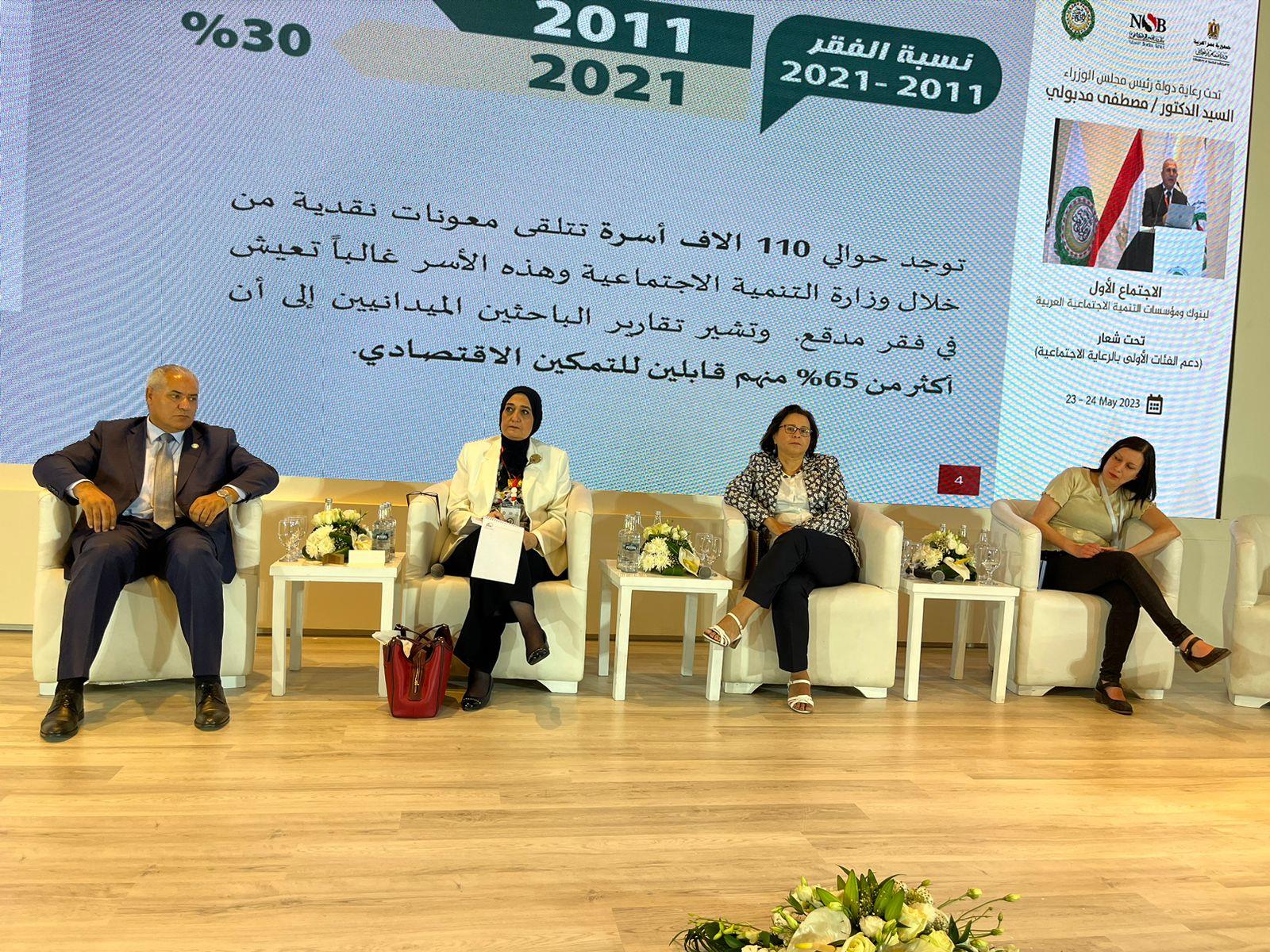Social protection programmes help families and communities overcome challenging economic circumstances

Multiple shocks and crises in the region have lead to soaring food prices, rising poverty and unemployment. According to the regional overview of food security and nutrition 34.7% of the region’s population is experiencing moderate or severe food insecurity.
In this context social protection and economic inclusion programmes have an increased importance to help families and communities withstand and overcome challenging economic circumstances – especially in rural areas where poverty rates remain the highest.
This came in the speech of Mr. AbdulHakim Elwaer,m FAO Assistant Director- General and Regional Representative for the Near East and North Africa during his participation in the first regional conference on social development banks and institutions supporting the first groups with social care, which was held in Sharm El-Sheikh / Egypt under the patronages of Egyptian Prime Minister Mustafa Madbouly in May 23-24, 2023
In the session “The effectiveness and fairness of financing social protection programs and economic and social empowerment”Elwaer said “Social protection programs play a pivotal role in alleviating poverty, reducing inequality, and fostering social cohesion. In the Arab region, where socioeconomic disparities persist, these programs are crucial for achieving sustainable development goals”.
“Economic empowerment is equally vital in the Arab region. Encouraging entrepreneurship, fostering skill development, and promoting inclusive economic growth are essential for reducing poverty and achieving sustainable development. Economic empowerment initiatives, such as microfinance programs, vocational training, and job creation schemes, empower individuals and communities to actively participate in economic activities and break the cycle of poverty: he added.
Government spending on these types of programs has increased significantly in the last 3 years. But much more investments are needed to lift those who have fallen below the poverty line and to protect those who are vulnerable.
According to the World Bank’s ASPIRE Atlas, government spending on social protection in the region is less than one third of the global average.
Given the tightening fiscal space across NENA countries more and more emphasis will need to be placed on 1) diversifying sources of funding for social programs and 2) increasing spending efficiency.
FAO is assisting governments across the region in the implementation and scaling of such programmes.
“One thing we have learned is there is a huge role for development banks and public private partnerships particularly in increasing financial services for the most marginalized. There is untapped potential for blended finance” FAO ADG said.
“In Egypt we just completed a project to support the most vulnerable rural women in the governorate of Minya, relying on Takaful and Karama as their primary source of income. The project showed how investments in human capital, productive assets can in a short time double or even triple the monthly income of a household while empowering women both socially and economically: he added.
In Lebanon FAO worked with the government to upgrade the agriculture technical and vocational education system while partnering with private companies to place more than 800 Lebanese and refugee youth in formal employment.
Stronger partnership and collaboration between donors, development banks and the private sector can help scale these achievements and bring in additional much needed investments.
FAO has also recently completed an in depth assessment on how to increase coverage of social insurance programmes in the NENA region. We found that while contributory capacity is generally low among groups like agriculture workers and producers, with enough awareness among both employers and workers and the introduction of flexible contribution schemes it is very possible, and even necessary, to bring informal workers into the social insurance system as a way to protect them against old age, disability and sickness.
The second major opportunity lies in increasing spending efficiency.
New distribution channels such as mobile branches or bank counters in rural post offices can help to reduce costs – or working with rural institutions like producer organizations and community based organizations to support service provision. Above all, increased efficiency will require the streamlining of application procedures and requirements.
Finally, intuitional innovation is vital to improve the inclusivity and coverage of social protection and economic empowerment programmes in the Arab region.
